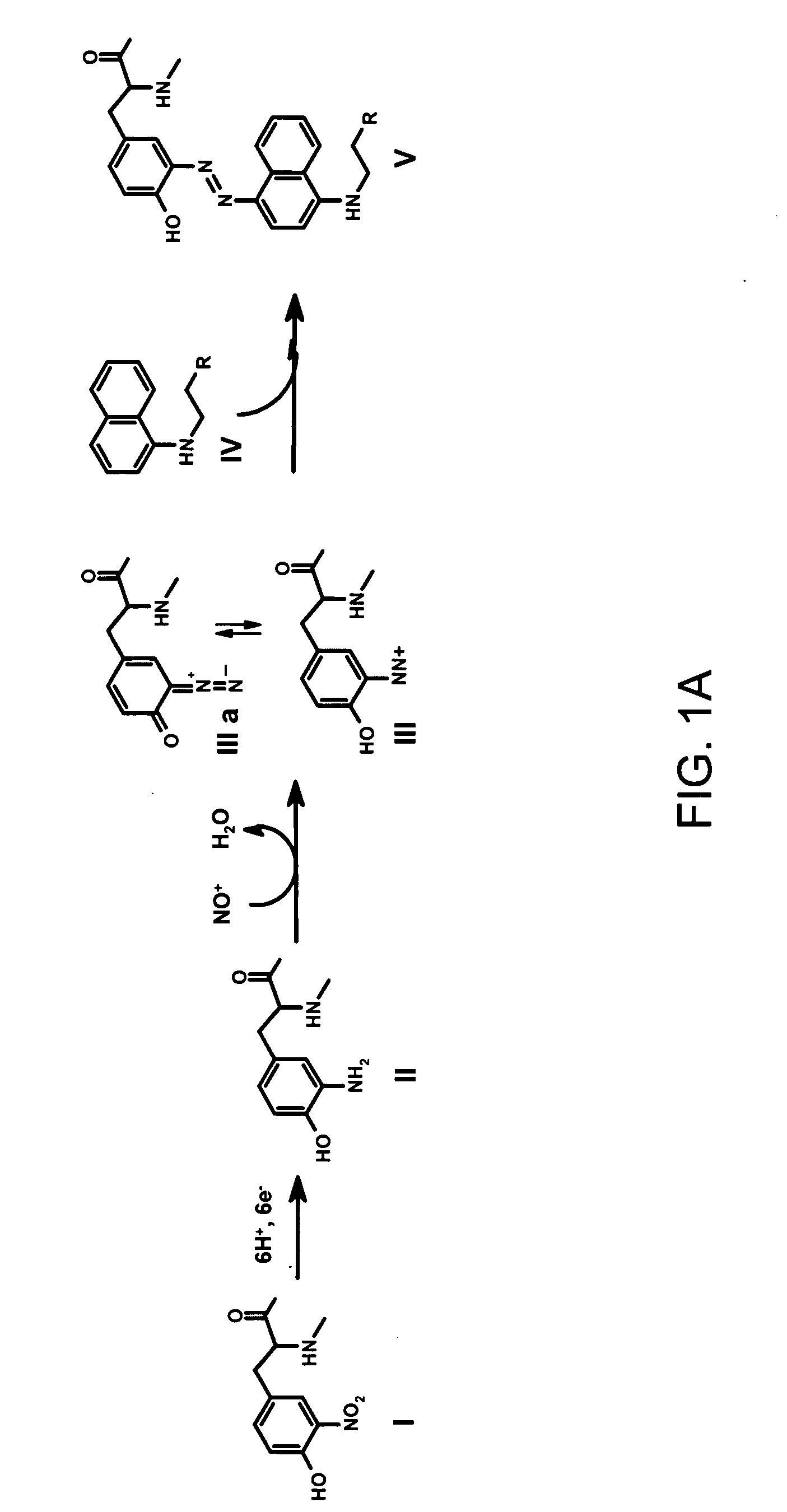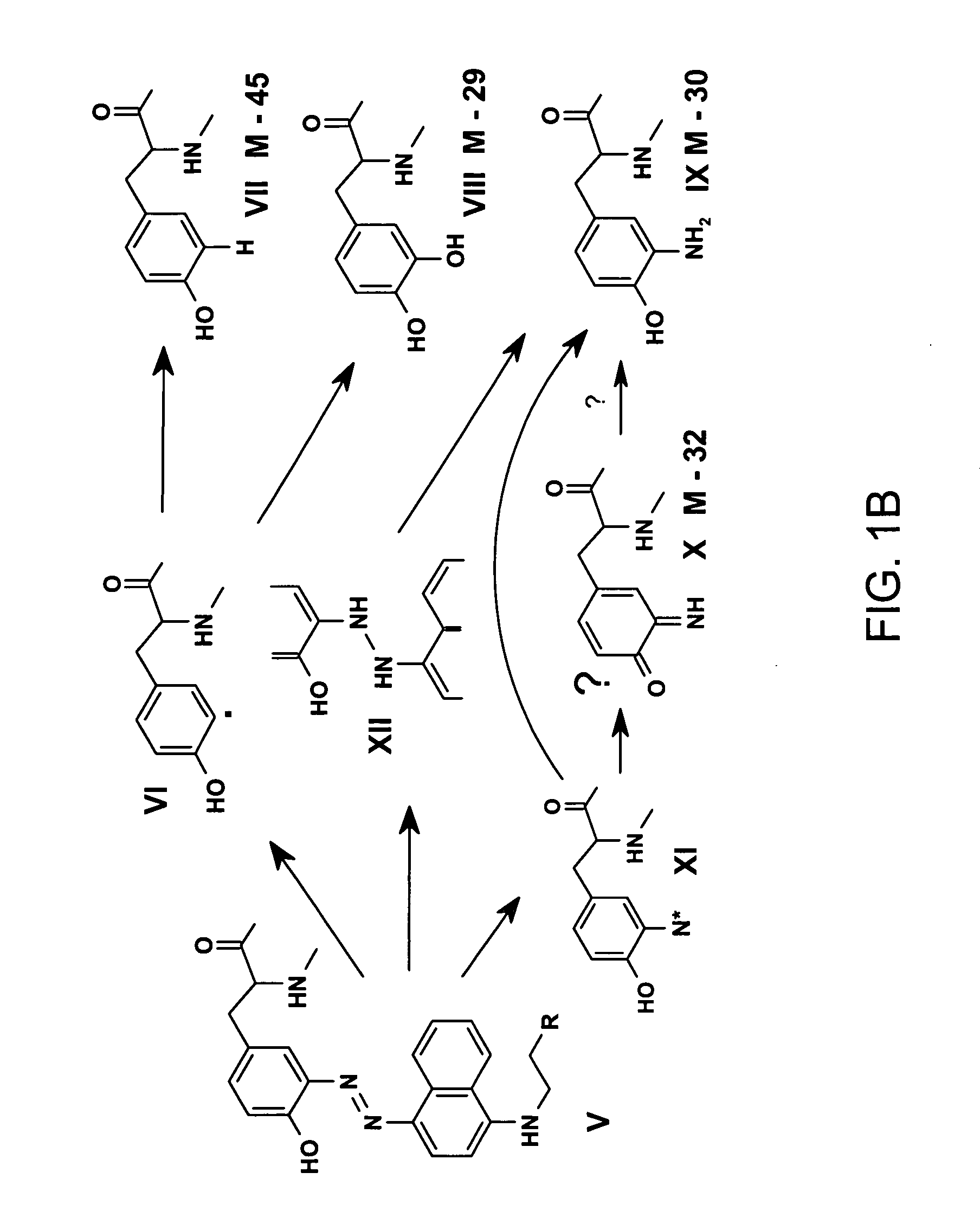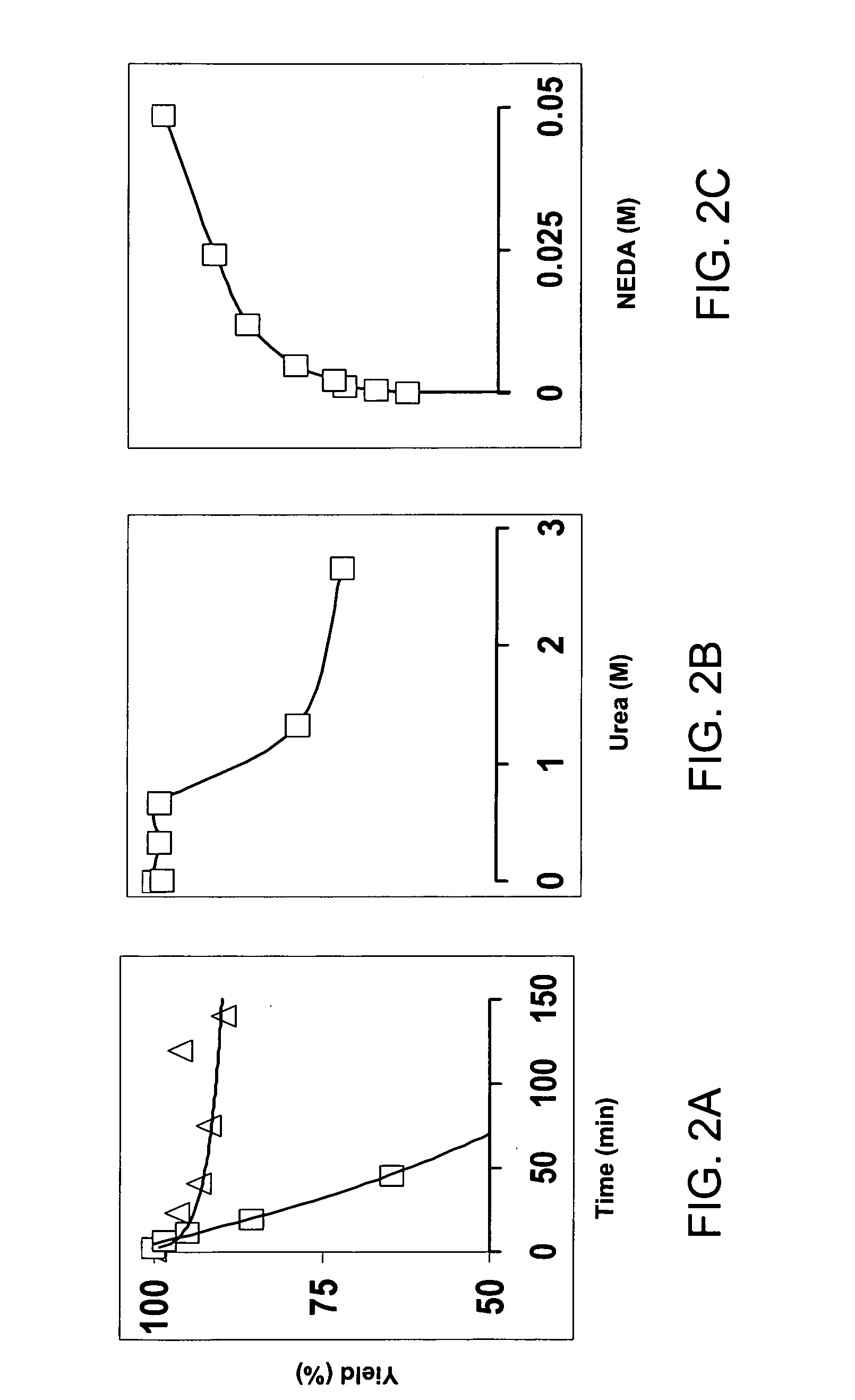Methods of detecting nitrotyrosine and aminotyrosine residues of peptides and proteins
a technology of aminotyrosine residues and peptides, which is applied in the field of nitroderivative compounds, can solve the problems of poorly understood chemistry of this process
- Summary
- Abstract
- Description
- Claims
- Application Information
AI Technical Summary
Benefits of technology
Problems solved by technology
Method used
Image
Examples
Embodiment Construction
[0023] It is disclosed herein for the first time that nitrotyrosine residues in peptides and proteins, as well as its reduced form, can be converted to diazotyrosine derivatives. These diazo compounds have unique chemical reactivity allowing azo-coupling of diazotyrosine-containing proteins with synthetic targets. These properties can be used to identify and quantify protein nitration and / or other nitroderivatives of proteins. Moreover, because nitrosation is a common chemical reaction for all nitric oxide produced organisms and its efficiency for proteins is elevated due to micellar catalysis (micellar oxidative nitrosation) [30-32], diazotization of aminotyrosine residues of proteins may be a natural process of diazotyrosine formation in vivo.
[0024] Nitration of tyrosine residues is known as one of several nitric oxide dependent chemical modifications of proteins. The level of nitrotyrosine can be elevated by the nitrative stress and is regarded as a marker for inflammation or so...
PUM
| Property | Measurement | Unit |
|---|---|---|
| Concentration | aaaaa | aaaaa |
Abstract
Description
Claims
Application Information
 Login to View More
Login to View More - R&D
- Intellectual Property
- Life Sciences
- Materials
- Tech Scout
- Unparalleled Data Quality
- Higher Quality Content
- 60% Fewer Hallucinations
Browse by: Latest US Patents, China's latest patents, Technical Efficacy Thesaurus, Application Domain, Technology Topic, Popular Technical Reports.
© 2025 PatSnap. All rights reserved.Legal|Privacy policy|Modern Slavery Act Transparency Statement|Sitemap|About US| Contact US: help@patsnap.com



